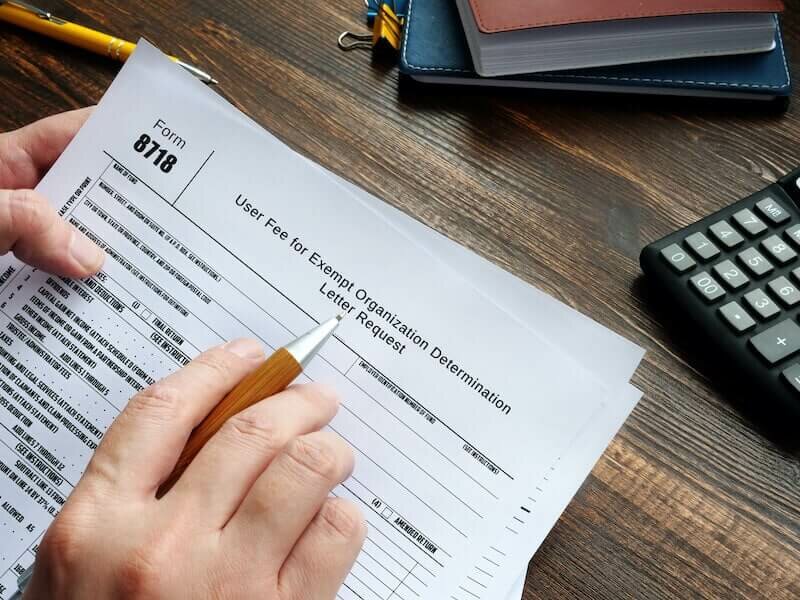Contrary to popular belief instilled by social media and real estate ads, not every home that enters the market is in great condition, sparkling new, or freshly remodeled. In fact, approximately 80% of homes in the U.S. have already weathered more than two decades of wind, rain, sun, and other elements, so some issues are to be expected.
However, some issues aren’t as visible, and those are property taxes. If you’re looking to sell a house with a lien or in poor condition, it’s best to call in professionals. Mill City Home Buyers are cash home buyers Minneapolis taxpayers trust to market their houses fast, and for a reliable price.
Luckily, home sales are exempt from taxes as long as one criterion is met: you have ownership of the property. Here’s everything we found on Minnesota property taxes and property tax exemptions.

An overview of Minnesota Property Taxes
In Minnesota, taxes on real estate are a crucial source of revenue for funding public institutions, like schools, cities, and counties, but they also serve to finance local projects, like libraries and parks.
However, property taxes in Minnesota are close to but slightly higher than the national average. More accurately, the state of Minnesota has an average effective tax rate of 1.08%, while the U.S. average is 1.07%.
Tax rates vary depending on where you live. Urban areas, like Hennepin County, usually have higher tax rates as high as 1.28%, while more rural areas, like Becker County, feature effective rates as low as 0.79%.
How do Minnesota property taxes work?
There are two categories of property taxes in Minnesota: market value levies, levies based on net tax capacity. Here’s how those are calculated.
The net tax capacity is calculated when you subtract any market value exemptions from your home’s market value. The most common exemption is the homestead exemption for owner-occupied residences with a market value lower than $413,800. Homes with a market value above the aforementioned sum receive no homestead exclusions.
After subtracting the exemptions, you should multiply the remaining taxable amount with the home’s class rate to calculate the net tax capacity. The class rate usually depends on the type of property, and it’s 1% for homesteads whose market value is below $500,000 and 1.25% on everything above that.
For example, if your home’s worth $300,000, the net tax capacity is 1%, or $3,000. Since they support the ongoing government functions, local taxes apply to net capacity taxes. Continuing the example, if your local taxes account for 90% of your net capacity, the taxable amount would be $2,700.
Market value levy rates, which are voter-approved, apply directly to an estimated market value, and in this case, amount to 0.10%. Considering the value of $300,000 mentioned above, your additional tax would be $300. Combined with the above $2,700 in taxes, that brings your total net tax to $3,000, or 1% of your home’s market value.
You can use an online property tax calculator, to roughly estimate taxes based on the value of your property.
Minnesota tax laws
Property owners in Minnesota pay property taxes based on property value and are administered by the county level.
Property tax value and classification
Each year, the local government sets a budget and determines how much money must be raised through property tax revenue to cover spending after accounting for other revenues. The value and classification of your property are used to determine your taxes and your share of the levy.
· Property tax value — The county assessor’s office determines your property’s estimated market value (EMV) and classification, usually by January 2nd each year. The EMV is further adjusted for any exemptions or reductions to determine your home’s taxable market value.
· Property classification — Your property is classified based on the property’s primary use, as either a homestead, an apartment, or a cabin. Each classification is taxed at a different class rate, determined by Minnesota law.
Property Notices
According to the Minnesota Department of Revenue, taxpayers should receive two documents about their property taxes each year.
· Truth in Taxation notice — These notices are sent to all property owners before local governments finalize their budget for the upcoming year, usually in November. This document explains how property taxes are determined and how taxpayers can become involved with local budgeting and taxation. A notice also includes the value and classification of your property, tax amount for the current year, and proposed tax estimates for the upcoming year.
· Property tax statements — These are mailed to all property owners by March 31st, including how much property tax they owe for the year, an itemized list of local property tax, and any special assessments on your property.
Minnesota Property Tax Exemptions
Under Minnesota law, all property except tribal reservation lands is subject to taxation, so it’s up to the owner to prove that their property qualifies for exemption under Minnesota Statute 272.02.
To qualify for an exemption, a property needs to be owned by a qualifying person or entity or used for public purposes, such as education, charitable work, or religious worship.
The most common tax-exempt types of property are churches and places of worship, institutions of purely public charity, public hospitals, schools, nursing homes, qualifying wetlands, and native prairie lands. Refer to the Minnesota Statute 272.02 for a longer list of tax exemptions.
First-time applicants
If you’re a first-time applicant, you should file your exemption application as soon as possible and use your exempt property for exempt purposes before July 1st of the current year to be exempt from the next year’s taxation.
Standard Application requires the following documents:
· Articles of Incorporation and Bylaws Certification
· IRS form 990
· Property deeds and sales documents
· Copies of tenant leases
· Other pertinent documents
Institutions of Purely Public Charity require the following documents:
· Same documents and records as are necessary for Standard Application
· A completed North Star Factors Survey
Nursing homes undergo a specific application process, requiring a qualification under Minnesota Statute 272.02 subd. 90.
Third Year Re-Filing Requirement
If you’re re-filing for exempt property, and the tax-exempt status of supportive documents submitted in the original application hasn’t changed, you’ll only need the following documents:
· Your original application
· The North Star Factors Survey
· The last three completed years of IRS 990.

How to Find Out If You’re Exempt From Property Taxes
To find out if you’re exempt from general property taxes, the best course of action is to consult with your county auditor, Minnesota Tax Court, or Minnesota Department of Revenue. However, there are several categories of tax exemptions, and your eligibility for tax exemptions depends on whether or not you fall in one of those categories.
Homestead Exemptions
Homestead exemptions allow homeowners to exempt a certain amount of their property’s worth from taxation, only if that property’s used as a primary residence. This type of exemption is available in most states and depending on the state, you can either exclude a flat-rate amount of your home’s value from tax assessment or a percentage of its overall value.
However, there are some benefits and limitations to homestead exemptions. One benefit is that a larger exemption amount can be granted to married couples or joint owners, but when it comes to limitations, homestead exemptions significantly vary from state to state, and some states don’t even offer homestead exemptions whatsoever. Any vacation and investment properties are also not eligible for homestead exemptions.
Senior exemptions
Numerous states provide tax exemptions for homeowners to senior citizens once they reach a certain age. The individual details of these programs, like requirements and restrictions, may vary by state. It would help if you made sure to do your inquiries and research regarding senior exemptions, as you may qualify for substantial savings.
Exemptions for People With Disabilities
Individuals with disabilities may also be qualified for tax relief on a fixed portion of property taxes. Certain expenses can’t be exempt but may help you reduce taxable earnings. For example, specific home renovations that assist you with greater mobility and accessibility, like a ramp or a chair lift, may qualify as tax deductions.
It’s important to do your research, as laws, rules, and regulations vary by state. However, if you have a disability, it’s entirely reasonable to expect some eligibility to tax relief on at least a portion of your property taxes.
Exemptions for Veterans
Military veterans, as well as active service members, may also qualify for property tax exemptions. These exemptions pose significant savings opportunities, as they exempt you from partial or complete property taxation. These benefits can provide thousands in potential tax savings.
Income-Based Exemptions
You may be exempt from property taxes if you’re a low-income earner. However, this only applies to certain municipalities, so please check local and state laws and regulations.
Summary
Home sales and selling a house for cash aren’t taxable as long as you’re selling a primary place of residence. If you have any questions or doubts regarding your house sale, contact Mill City Home Buyers – we offer cash and we buy houses Minnesota locals are looking to sell quickly and in any condition.
